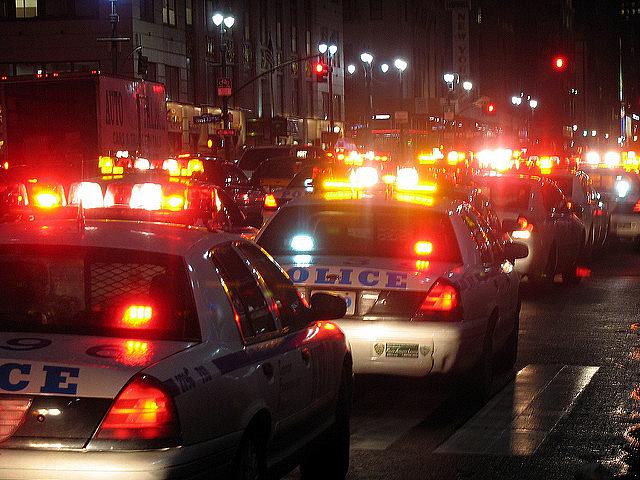Are failures of the health care system leading to more violent encounters with police?

It has been almost impossible to miss the press attention focused on mass shootings and police use of force over the past year. And there is always a search for individual answers in each case about why they happen.
Was the person mentally ill?
Are the police too quick to use deadly force?
Why does this keep happening here?
It’s true that the white-hot light of media has been focused intensely of the high profile cases of violence. But it’s also true that they make up a small fraction of the everyday violence that impacts American communities.
From my observations, violence and police involved shootings often have a health care and mental health component that is underreported.
California’s Central Valley has a reputation for violent communities. The area also has a reputation of having some of the most trigger-happy police. That makes this area a prime stop to explore the topic, which will be the focus of my 2016 California Fellowship project.
Among the many reasons that lead to deadly encounters, access to health care and mental health services in specific communities may be contributing to the violence. Additionally, police have been asked to take on more and more responsibility that falls outside the bounds of traditional law enforcement. Some law enforcement leaders have expressed concern that Americans are asking police to do too much by becoming the front lines of the American health care system.
Is there a geographic connection between communities where violence occurs and the availability of health care providers? Have increasing rates of insurance affected rates of violence and encounters with police? How do people who live in these communities cope with the stress factors that accompany violence? Is access to primary case as important as mental health services? Do families have options for troubled relatives and friends before calling the police? What are the impacts and aftereffects on the officers themselves that are involved in shootings? Is it even fair to point to the health care system as a contributing problem?
This can seem like an overwhelming topic. Violence happens in many places, on a daily basis. But I think by zooming in on a few specific cases and then looking at the big picture, one can see if and how these forces fit together.
There are some big challenges and potential problems with the thesis. Finding families — not just of victims but of perpetrators — to talk to on the record could be difficult. It may be even harder to persuade police officers who have had to kill in the line of duty to talk about how it affected them.
There is also the danger of assigning too much blame on access to mental health care. There are so many factors that add up in an individual’s life that drive them to the point where they kill another person or are killed by police. According to some research, even people who go on mass shooting sprees sometimes show no warning signs of mental health problems.
It’s also impossible to rule out the impact of quick and abundant access to guns in America.
Much reporting has been done about police-involved deaths and mass shootings, but I think this story is more about the everyday violence that happens in America, not just high profile occurrences.
Viewing violence in America as a health care issue could help further the conversation about how to decrease violent encounters. Not just by police, but among civilians as well.
[Photo by robotpolisher via Flickr.]

